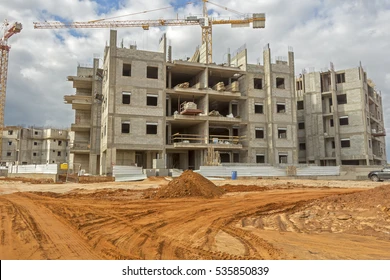BUSINESS

REAL ESTATE OVERTAKES OIL AS NIGERIA’S ECONOMY HITS N372.8 TRILLION AFTER GDP REBASING
Nigeria's economy has been rebased for the second time in a decade, and the latest numbers reveal a major shift in its structure.
According to new data from the National Bureau of Statistics (NBS), the country’s Gross Domestic Product (GDP) has grown to N372.8 trillion in 2024—roughly $145.3 billion at today’s exchange rate.
One of the most surprising changes? Real estate has overtaken crude oil as the third-largest contributor to Nigeria’s economy.
The rebasing—an update to reflect changes in the economy’s structure and emerging industries—looked at data from 2019 to 2024. It showed that the economy grew at an average pace over those years, though growth slowed slightly in early 2025.
Despite this upward trend, many Nigerians are not feeling the benefits. Inflation remains high, with the cost of food and basic necessities climbing sharply. Headline inflation stood at 22.22% in June 2025, while food inflation was at 21.97%.
Experts say the rebased GDP offers a clearer, more accurate picture of Nigeria’s economy. It now includes a broader range of activities like e-commerce, creative industries, and technology.
According to Muda Yusuf, CEO of the Centre for the Promotion of Private Enterprise, the updated figures show:
Real estate has moved ahead of crude oil
The service sector is growing faster than agriculture and industry
The informal sector’s contribution increased from 41% to 42.5%
Agriculture’s share rose from 22.12% to 26%
Industry went from 21.08% to 27.7%
Services grew from 50.22% to 53.09%
“These shifts tell us the economy is more diversified than we thought,” Yusuf noted.
While a bigger economy looks good on paper and may boost investor confidence, experts warn that it doesn’t automatically improve the lives of ordinary citizens.
Gbolade Idakolo, CEO of SD & D Capital Management, pointed out that Nigeria’s low tax-to-GDP ratio could lead to higher taxes, potentially worsening hardship for many. “The rebasing doesn’t change the fact that people are dealing with rising costs, unemployment, and shrinking incomes,” he said.
Similarly, Prof. Godwin Oyedokun of Lead City University emphasized the need for inclusive policies that translate economic expansion into better living conditions. “We need to turn this statistical growth into real, human-centered development,” he stressed.
Bottom Line
Nigeria’s economy is officially bigger and more diversified, but unless the government acts intentionally to improve infrastructure, create jobs, and reduce inflation, most Nigerians may not see any real change in their daily lives.
As the numbers go up, the focus must now shift to ensuring that growth benefits everyone, not just on paper—but in people’s pockets.
"This represents a significant development in our ongoing coverage of current events."— Editorial Board









